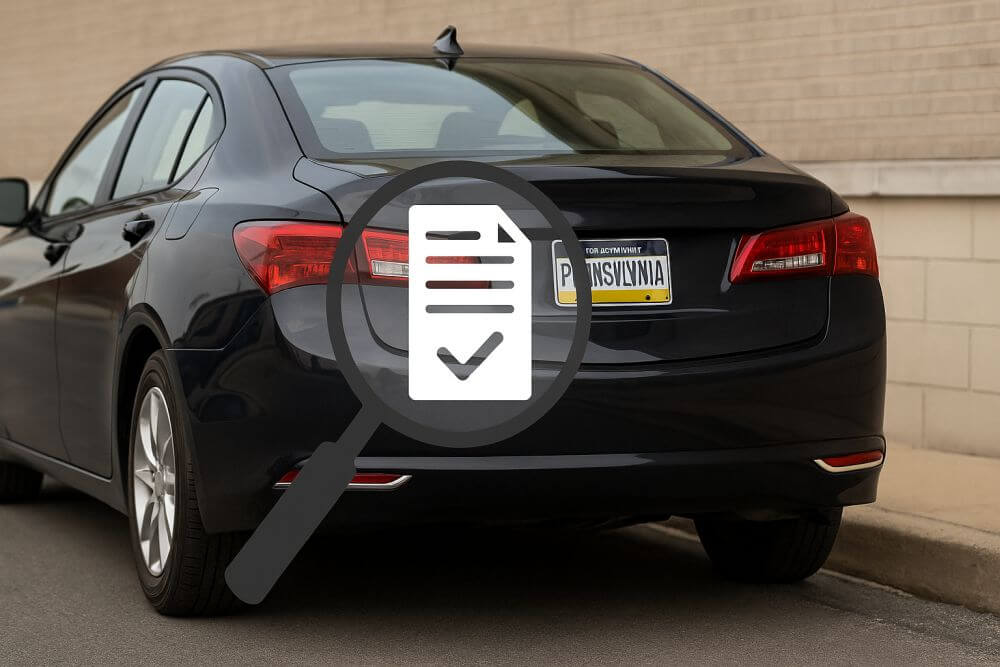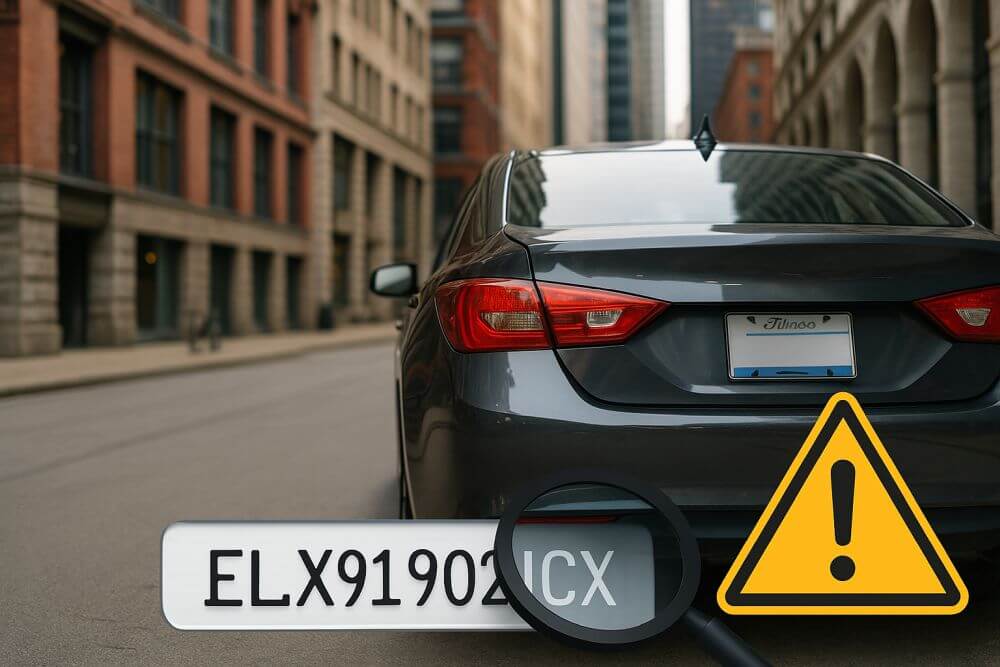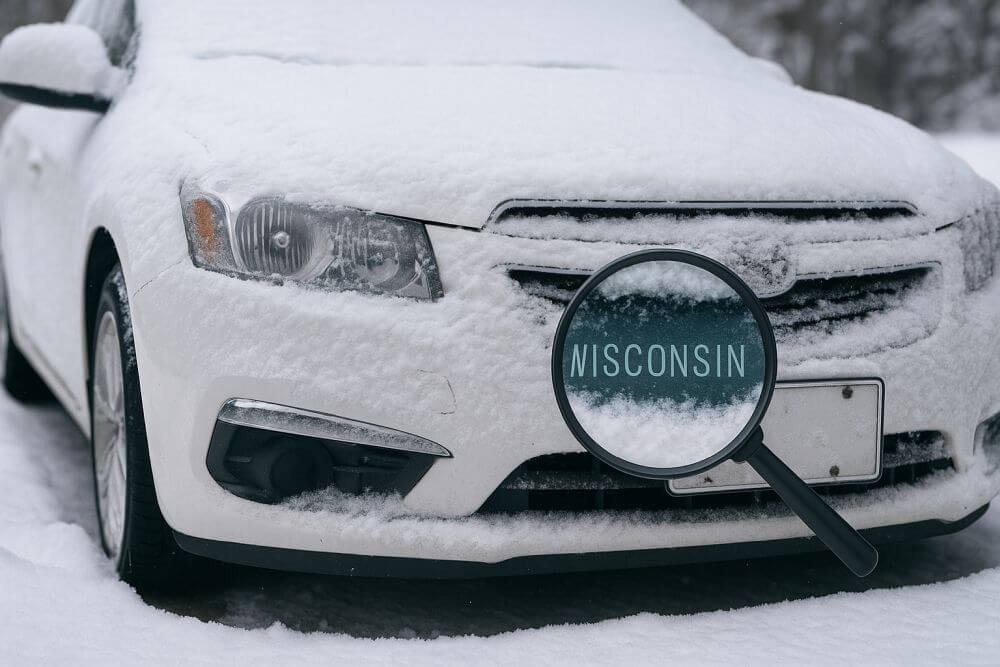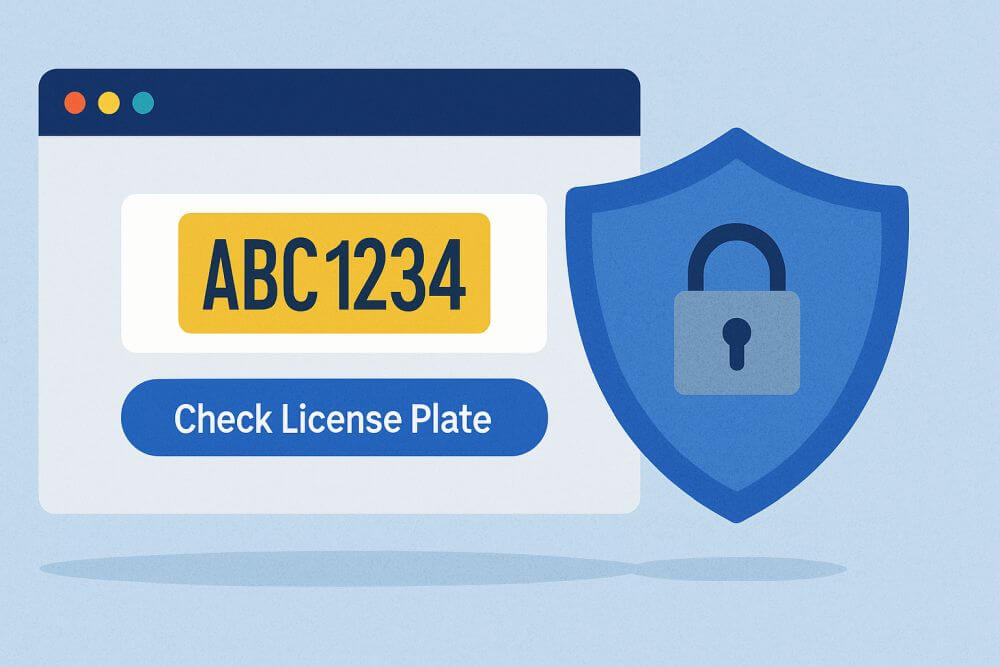Buying a used car in Pennsylvania can feel like a smart financial move—until it turns out the vehicle has a branded title. If you’re unfamiliar with the term, a “title brand” is a permanent flag placed on a vehicle’s title that tells you something important happened in its past—like a major accident, flood damage, or even total loss.

But here’s the tricky part: these vehicles are still on the market, often looking great and priced to sell. If you don’t check the title status before you buy, you could end up with a car that’s unsafe, overpriced, or impossible to insure.
Fortunately, there’s a simple and fast way to uncover a vehicle’s hidden past—by using a Pennsylvania license plate lookup.
What Are Title Brands—and Why Do They Matter?
When a vehicle is significantly damaged, it can be given a title brand by the state DMV. These brands remain with the car forever, even if it’s repaired and resold.
Common title brands in Pennsylvania include:
- Salvage – Declared a total loss by an insurance company
- Rebuilt – Previously salvaged, now repaired and re-certified
- Flood – Exposed to water damage (common in hurricane or storm zones)
- Lemon Law Buyback – Returned to the manufacturer due to unresolved issues
- Junk or Scrap – Not roadworthy, sold for parts only
These labels impact a vehicle’s resale value, safety, and eligibility for financing and insurance.
The Real Risk: Private Seller Listings Without Full Disclosure
While licensed dealers are required to disclose branded titles, many private sellers don’t—and some may not even realize their car has a brand.
That’s where you come in as a smart buyer.
Before handing over any cash or signing paperwork, it’s crucial to check the title status yourself using the plate number. It only takes seconds and could save you thousands.
🔍 Check vehicle history using the plate number
What You Can Learn from a Pennsylvania License Plate Lookup
A license plate search taps into state and national vehicle databases. Even without a VIN, you can use a plate number to retrieve key information, including:
- Title history and brand indicators (e.g., salvage, rebuilt)
- Past accidents and airbag deployments
- Registration activity (to confirm ownership)
- Number of previous owners
- Odometer readings over time
- Open safety recalls
- Theft or lien status
This helps you spot red flags even if the car looks clean on the outside.
How to Check Title Brands in Pennsylvania Step by Step
Here’s how you can verify a car’s title using just the plate:
Step 1: Ask for the License Plate Number
Most private sellers are happy to share it. If they hesitate or refuse, that’s a red flag.
Step 2: Go to the PA Plate Search Tool
Head over to the official VinCheckPro Pennsylvania plate search page:
👉 https://www.vincheckpro.com/license-plate-search/free-license-plate-search-pennsylvania/
Step 3: Enter the Plate Number
No VIN needed. Just type in the license plate number exactly as it appears.
Step 4: Review the Report
Look closely for any title brands. These will usually be labeled clearly (e.g., “Rebuilt Title – PA” or “Flood Damage – FL”).
What to Do If a Title Brand Appears
If your report shows a title brand, ask the seller direct questions:
- When did the brand get added?
- Do they have documentation showing the repairs?
- Has the vehicle been inspected or certified?
- Will your insurance provider cover it?
Not all branded vehicles are bad, but they do carry extra risk. Use the findings to negotiate the price or walk away if something doesn’t feel right.
What About Clean Titles? Can They Be Misleading?
Yes, unfortunately. A car may have a clean title but still hide damage history. This happens when:
- The damage didn’t meet the threshold for a total loss
- The car was repaired without insurance involvement
- It was re-titled in a different state (a practice known as title washing)
That’s why it’s smart to use both plate and VIN checks to verify consistency across states.
Hidden Clues to Look for in a Vehicle History Report
Beyond title brands, here are signs the car might not be what it seems:
- Odometer rollback – Mileage suddenly drops between years
- Frequent resales – Three owners in two years? Something’s wrong
- Auction sales – Salvaged or repossessed vehicles are often auctioned
- State hopping – Titles transferred between multiple states may indicate title washing
When in doubt, trust the paper trail, not just what the seller says.
Frequently Asked Questions
How do I check a Pennsylvania title for free?
Use the VinCheckPro free plate lookup tool. Just enter the license plate number on our Pennsylvania page and get instant title and brand status.
Can I find out if a car has a salvage title in PA?
Yes. The report will clearly show if the title has a “Salvage” or “Rebuilt” label.
Is it safe to buy a car with a rebuilt title?
It depends. If the repairs were done professionally and the car passed inspection, it can be a good deal. But resale value and insurance may be limited.
What is a title washing scam?
This is when a vehicle with a branded title is re-registered in another state that doesn’t recognize the brand, then sold as “clean.” Always check the vehicle’s multi-state history.
Can I run a lookup without the VIN?
Yes. A license plate search works even without a VIN, making it ideal for quick checks on private sales or online listings.
Final Thoughts
Checking a vehicle’s title history is one of the smartest steps you can take before buying a used car—especially from a private seller in Pennsylvania. Title brands don’t always show up on the dashboard, but they can have a lasting effect on your safety, wallet, and peace of mind.
Instead of taking chances, use the plate number to get the truth.
✅ Check vehicle history using the plate number in PA
It’s free, fast, and could prevent you from buying a vehicle with a troubled past.


